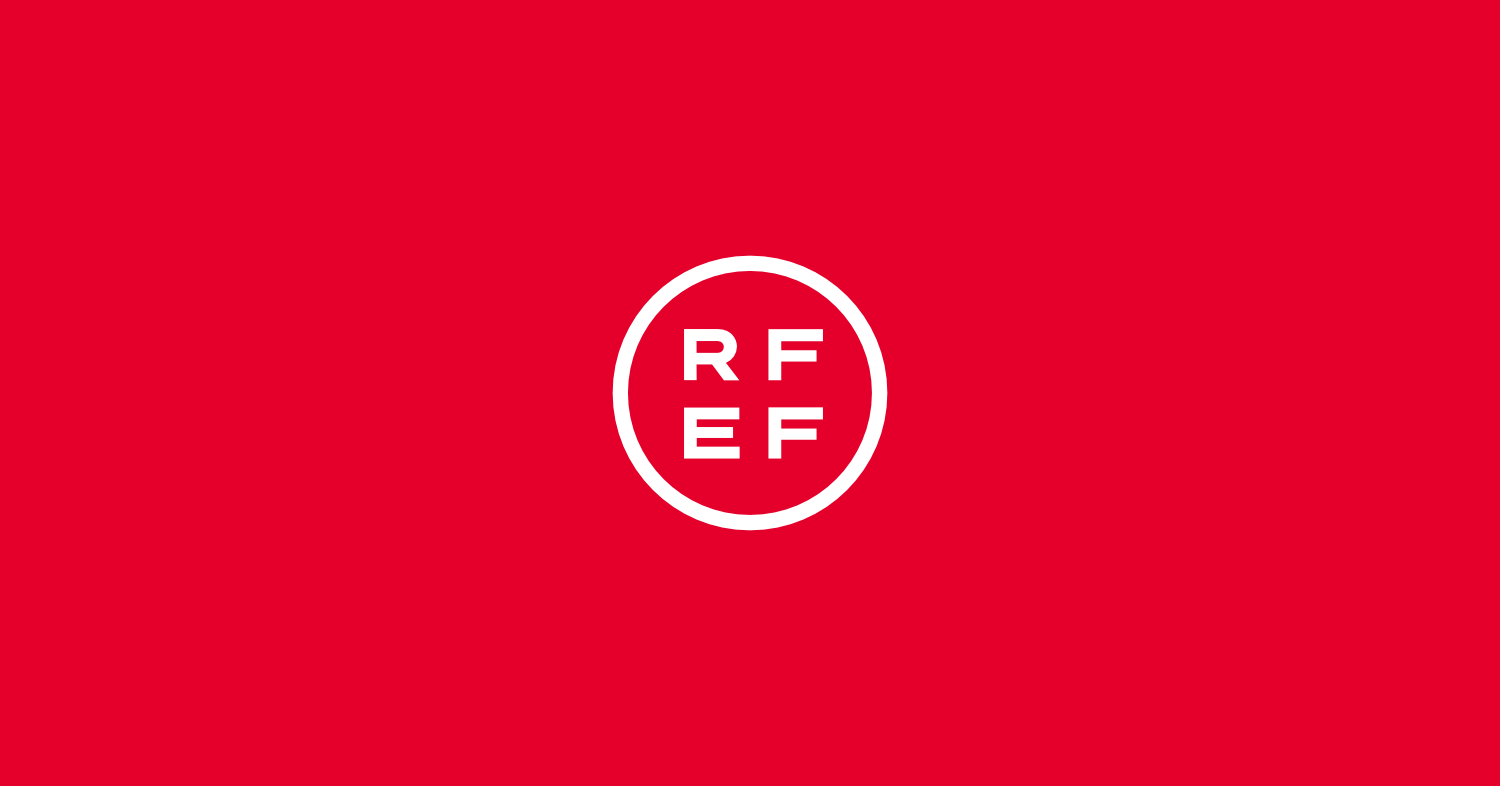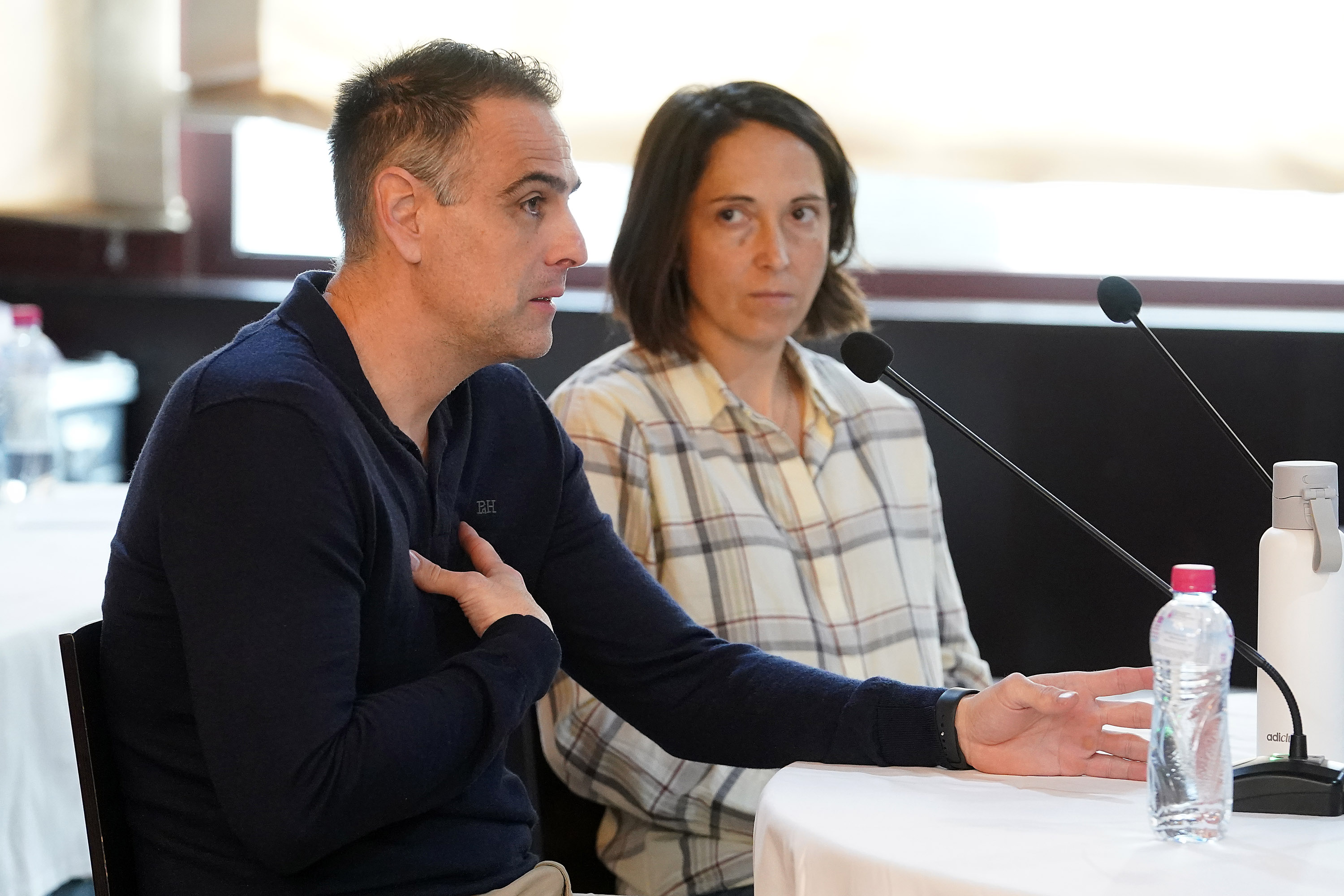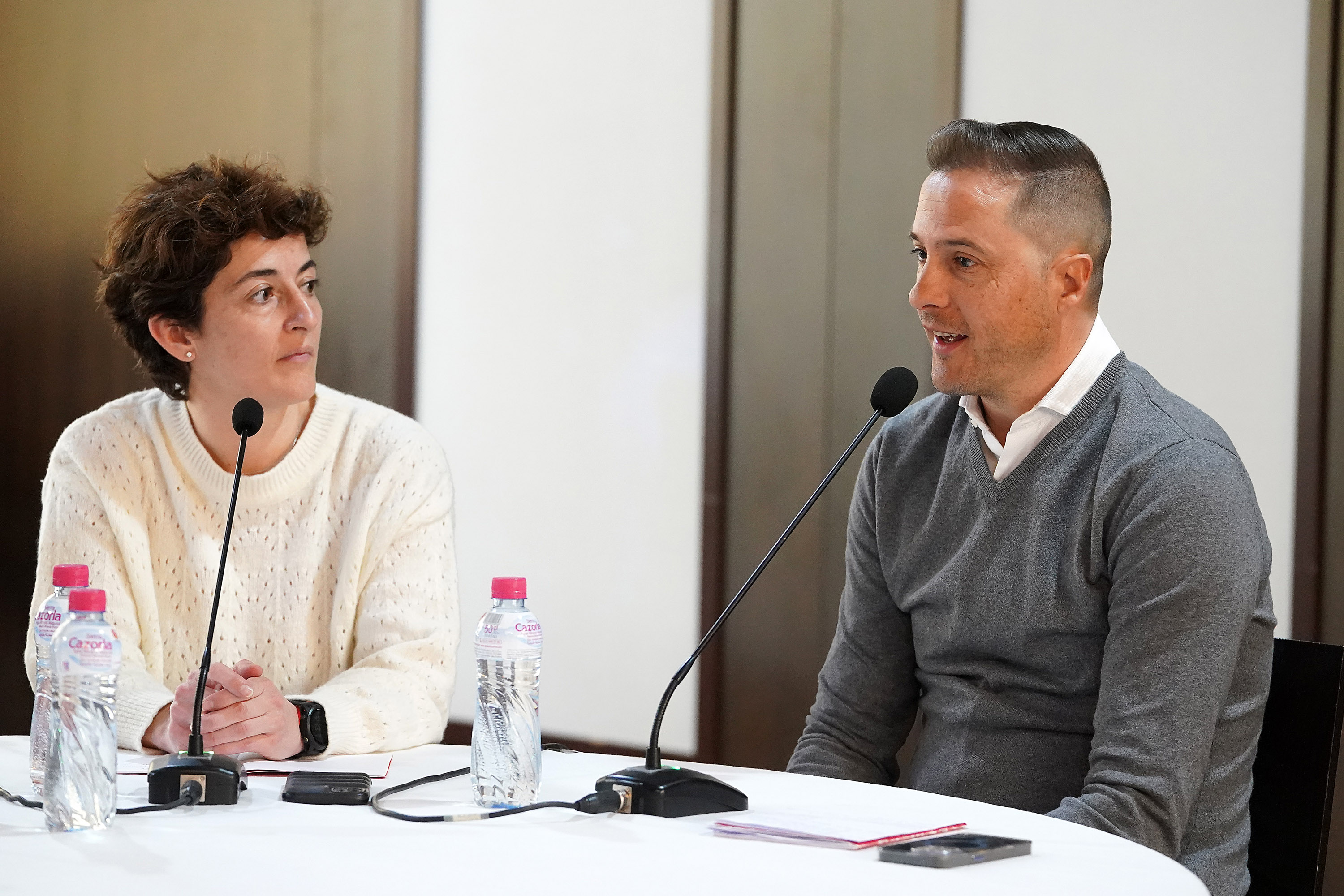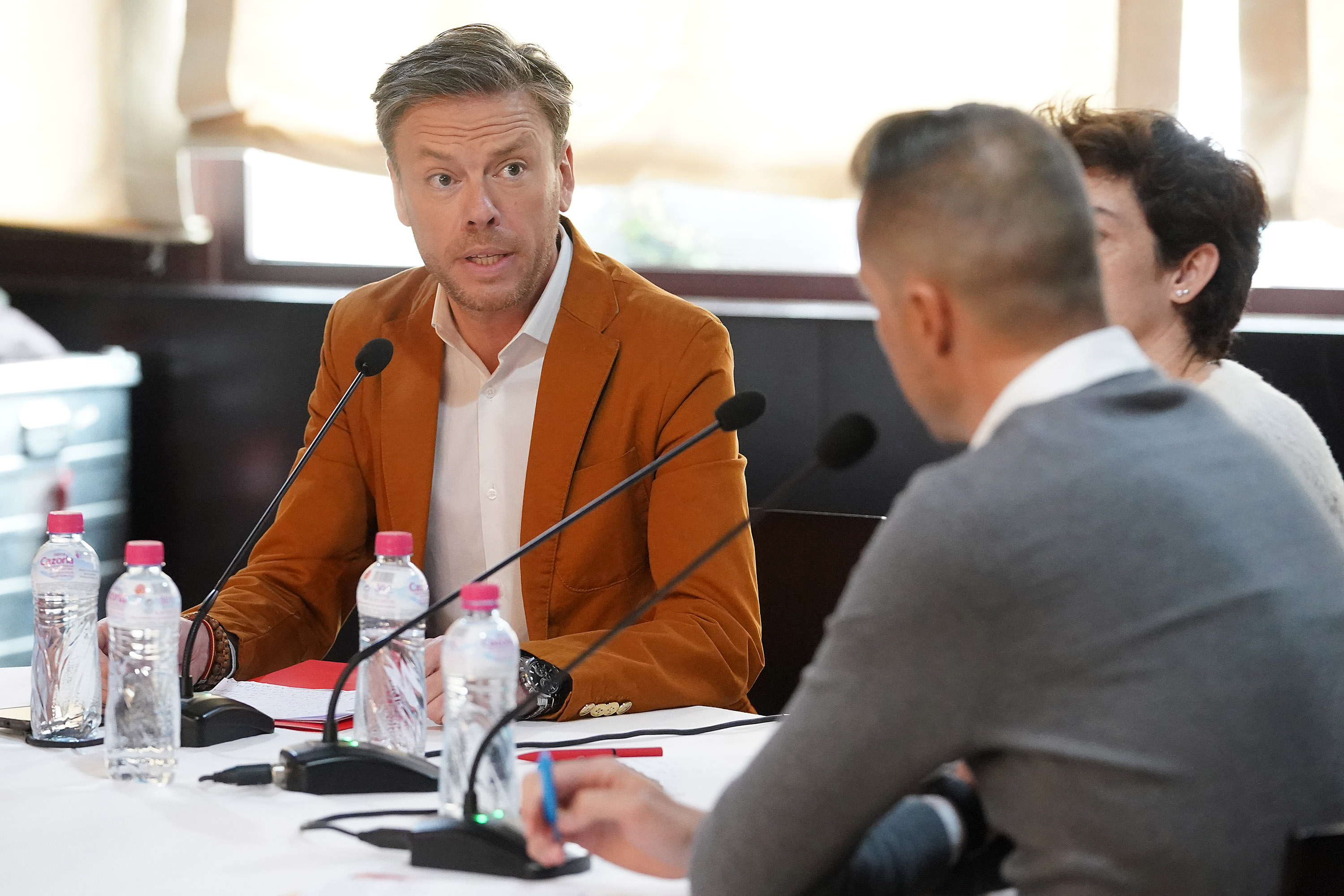Round table on child protection in football

As part of the residential workshop named after. “Advanced Course for Child Protection Delegates” The Royal Spanish Football Federation (RFEF), organized by the Departments of Integrity, Protection and Education of Children, held a roundtable, during which real cases and examples of good practice in creating a safe environment with minors were presented.
Moderates Felipe Sanchez-PedrenoDirector of the Department of Integrity and Child Protection, shared their vision and experience. Laura del Rio, coach of the women’s national team under 23; Ana Alvarezresponsible for the development of women’s football in the RFEF; Jose Antonio Culebras, teacher of the lower categories of RFEF; and psychologist of the Spanish national team, Javier Lopez Vallejo. Without a doubt, this is a very useful exhibition for the child protection delegates of the territorial federations present, whose next step is to prepare the final project. Sitting around the table were four representatives who, prior to their current role in the RFEF working with minors, were also footballers, hence the dual approach they brought to the table.
Ana Alvarez: ”You must create an environment in which people can freely develop their sport”
RFEF’s Head of Women’s Football Development recalled her time as a footballer with joy and enthusiasm, where she was encouraged to “learn and train” during competitions where “fun was all about it.” “Competition makes you better, but it’s one of the things that can lead you to negativity now.” With the achievement of the Women’s World Cup, Ana praised the enormous efforts made, and also emphasized that a few years ago, “it was unthinkable to see that everyone in our country follows the women’s national team and that we are considered football players, evaluating a game, a good throw… When you come to UEFA or FIFA, you understand the value they place on our achievements, understanding that the work we do really matters and is significant, they value it and it gives you energy. We must focus on the values of women’s football.”
Ana also hinted at the importance of “everyone feeling free, whatever your thoughts are, whatever nationality you are, whether you’re better or worse on the field, whether you get this or that grade in school… You have to create an environment in which they feel free to develop their sport, but at the same time they need to be given the tools, to establish a common framework, setting guidelines for punctuality, respect for others and space… Players come to the national team to show the best version of themselves and you need to find the best context for that player’s performance. Through empathy, teamwork and management, you have to get information from the players to help them improve, take responsibility and at the same time know how to manage what is happening.”
Laura del Rio: “Players are capable of resolving any conflict”
The coach of the U-15 and U-23 women’s teams explained the rules that are always present in the concentrations: punctuality, frequent use of the mobile phone, and good coexistence and respect in different places. With all this, the coach must be the first to set an example: “I cannot ask for respect if you shout at the hotel reception, or demand punctuality if you are always late. I’ve always had very good examples, I’ve followed people with good values, and that’s what I and the rest of the technical staff try to apply.”
Laura emphasized that “the figure of a mentor is very important both for the girls and for the coaching staff. 24 players come into the lineups, 24 different personalities, each has their own role in their team and it is different from the one they have in the national team, they are looking for their place, but also have the ability to resolve any conflict and Another thing is that they do not want this see”.
Javier López Vallejo: “The child protection delegate is a very important figure”
“The coaches who left their mark on my professional career were not those who helped me the most in tactical matters, but those who best guided me in life. That’s why I think we have a responsibility to help girls and boys who are less likely to make a living from football, so we have to give them values that will carry them throughout their lives. For me, being a child protection delegate is a very important figure, not a brownie at all,” said López Vallejo.
At the age of 15, the current psychologist of the Spanish national team received an offer from Milan. “At this age, you’re not ready to make a lot of decisions, so you need people around you who won’t take away from you. At home they made it very clear to me that studying is not plan B but part of plan A, playing and studying helped me a lot, putting all my eggs in one basket is not emotionally wise. And if you are lucky enough to make a living from football and you make it until you are 38, you have many more years of working life left,” he said.
The former footballer went further when talking about young people, saying that “this is a generation that has little patience, so it is our responsibility to convey to them the importance of a culture of effort and patience, to make them feel loved, to listen to them, by setting certain limits for them. .. . When I was a teenager I had more responsibilities than rights, now it seems the opposite. Rules make sense and are linked to values, for example punctuality means respect and this will help them compete better. We must help them by creating a context of autonomy, persuading them more than imposing it on them, and protecting them very well, but not overly.”
José Antonio Culebras: “It is very important to listen to young people and help them”
“It is very important to listen to young people in order to help them,” said Culebras, RFEF junior category mentor, before emphasizing that “every person and athlete at some point needs sincere help, because there are many palmeros and social networks that they have.” become multiplied. Those who reach the elite need other support, not just sports. For example, you might go to play in Norway and not perform as expected, but maybe that’s because your wife hasn’t adapted and that affects you too, so it’s important to be aware of a player’s adaptation.”
Felipe Sánchez-Pedreño: “The figure of a mentor is important”
The Director of the Department of Integrity and Child Protection mentioned during the roundtable moderation that “we can’t ask minors to have the tools to make all their decisions good, but we can give them guidance rather than ban them.” and create a safe environment. We may be advisors, but they are the ones who ultimately make the decisions,” before emphasizing that “the mentor figure is important.”
SEE DETAILED INFORMATION ABOUT THE CONFERENCE HERE.




